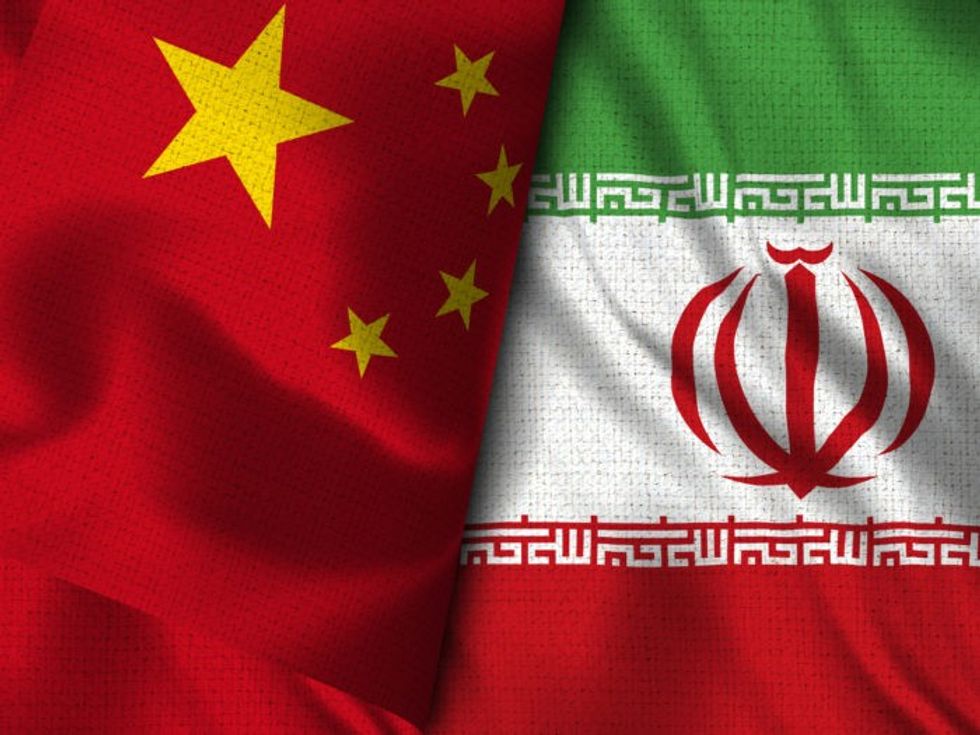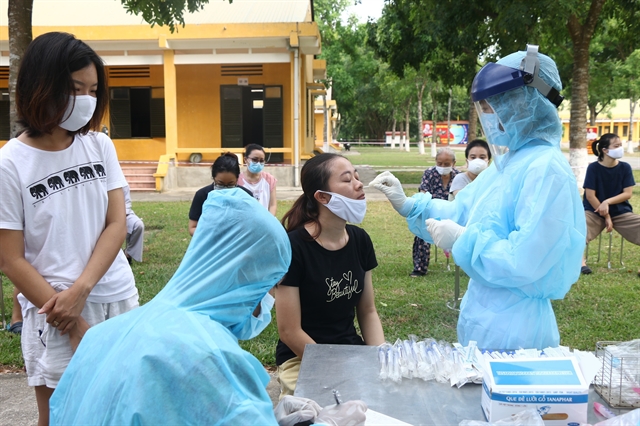
Conflict between Azerbaijan and Armenia over the disputed region of Nagorno-Karabakh has been longstanding. The last time the two states clashed and exchanged fire was a set of skirmishes in 2016, which lasted for four days.
Now, the conflict has heated up again, but in different way. This time, the clashes are taking place outside the disputed district of Nagorno-Karabakh and have spilled over to the territory of Armenia.
The reasons behind this conflict are rooted in history. There had been border and territorial disputes between the two countries when they were both part of the Soviet Union, and at that time Moscow, particularly in Stalin era, tried to maintain its control over them by keeping these differences alive. But since the collapse of the Soviet Union, border disputes have remained an old wound that from time to time reopens.
On July 12, the two countries’ Ministries of Defense announced clashes in Tovuz district at the state border. The two sides accused each other of ceasefire violations and starting the skirmishes. The Azerbaijani Defense Ministry announced that at least 11 Azeri soldiers and one civilian had been killed while on the other side, Armenia reported the death of 4 of its soldiers in the clashes.
This new outbreak of tensions is especially challenging for Iran, which borders both countries.
Tehran’s policy towards the countries and their conflict is thus critically important. Both sides expect Iran to side with them, and the complicated regional situation has made it difficult for Iran to commit to either.
Iran’s official position has always been to emphasize resolving the issue between the two countries through dialogue and diplomacy. On July 15, Iranian Foreign Minister Mohammad Javad Zarif, in two separate telephone calls with the top diplomats of Armenia and Azerbaijan, called on both countries to show restraint and resolve the disputes through dialogue.
Also, in a later phone conversation with the new Azeri Foreign Minister Jeyhun Bayramov on July 17, Zarif expressed Tehran’s readiness to mediate.
Iran is making these efforts at a time when hostility between the two countries has risen to a societal level. On July 16, thousands of angry Azeri citizens poured into the streets in Baku demanding the government to declare a mobilization and called on the army to stage a war against Armenia. The outraged Azerbaijani citizens called on their government to liberate the Nagorno-Karabakh region by invading Armenia. Azerbaijani police had to arrest several protesters to keep the volatile situation under control.
What is Iran’s real position on this crisis?
The complicated nature of the geopolitics of the region has made it more difficult for Iran to clearly define its policy towards the Nagorno-Karabakh conflict. First of all, “Iran supports a peaceful solution,” a senior Iranian diplomat, speaking on condition of anonymity, told me. “We will by no means accept the interference of powers from beyond the region and international powers in this crisis, and our priority is to resolve the issue peacefully.”
The senior diplomat went on to say: “Another issue here is our opposition to the war. Although we support the territorial integrity of Azerbaijan in this crisis and we are interested in resolving the issue through dialogue in favor of Azerbaijan, when it comes to war and military conflict, we do not agree at all with this subject and prefer to maintain the status quo.”
This is despite the fact that Azerbaijan is one of Israel’s main allies in the region. According to the Stockholm International Peace Research Institute, Azerbaijan as was the third-largest purchaser of Israeli arms in 2017, with purchases of $137 million. Prime Minister Benjamin Netanyahu, during his official visit to Baku in December 2016, revealed that Azerbaijan had up to that time bought $5 billion worth of Israeli weapons.
This is cause for concern for Iran. Israel, which is at the center of the Islamic Republic of Iran’s threat perception, has through Azerbaijan a strong presence on Iran’s northwestern borders. This increases Iran’s interest in a peaceful solution rather than a military conflict.
On the other hand, despite its close relations with Turkey, Iran does not seem to agree with Pan-Turkic ideas that Ankara supports, or with Turkey’s alleged desire to revive the Ottoman Empire in Central Asia.
Although Iran has warm relations with Ankara, President Recep Tayyip Erdogan’s behavior in regional conflicts such as Syria and Libya in recent years shows that he is not reluctant to intervene against Iranian interests . For this reason, Tehran does not welcome a new war in the region, as sending Turkish troops to Azerbaijan to confront Armenia could pave the way for a formation of a pro-Turkish belt around Tehran’s northern borders.
In addition, a sizable ethnic Azeri population lives in Iran, mainly inhabiting the East and West Azerbaijan provinces, which border Azerbaijan, Turkey, and Armenia. This puts pressure on Iran to side with Azerbaijan in its conflict with Armenia, as some in the Iranian Azeri minority want Iran to provide military support to Azerbaijan.
Ruhollah Hazratpour, a lawmaker from Urmia, the provincial capital of West Azarbaijan in the Iranian parliament, warned Armenia on his Twitter account on July 13 to avoid “foolishness” because, in his words, the countries of the region would not allow the occupation of an Islamic territory by Armenia, which he accused of implementing Israeli and US policies.
Similar comments made by individuals from a Turkish-Azeri background in Iran have been abundant. Thus, the Iranian government has to take into consideration local sensitivities of its own large Turkish-Azeri ethnic group in its policymaking regarding the Nagorno-Karabakh conflict.
While local Pan-Turk nationalists such as the aforementioned Iranian lawmaker are trying to win Tehran’s support for Baku in the Nagorno-Karabakh conflict on the pretext of supporting a fellow Islamic country, Tehran acts according to its own national interests rather than Islamic or Shia beliefs. Furthermore, while Azerbaijan maintains closer ties with Israel than Armenia does, the relations between Iran and Armenia have been traditionally warm and close. Given all this, Iran is more interested in resolving the issue peacefully than other actors are and would not welcome the eruption of violent conflict between its two neighbors.
The post How will Iran respond to renewed conflict between Azerbaijan and Armenia? appeared first on Responsible Statecraft.





 Conséquence inattendue de la crise du Covid-19 : certains Français ont décidé de faire changer leur plaque d'immatriculation avant de partir en vacances, notamment pour éviter les dégradations. C'est tout particulièrement le cas des Mayennais.
Conséquence inattendue de la crise du Covid-19 : certains Français ont décidé de faire changer leur plaque d'immatriculation avant de partir en vacances, notamment pour éviter les dégradations. C'est tout particulièrement le cas des Mayennais.






 Réduction du CO2 à la production, diminution des coûts, mise à l'échelle de l'appareil industriel, développement du réseau de distribution : les défis de l'hydrogène sont immenses. Pierre-Etienne Franc, le patron de l'hydrogène chez Air Liquide, dresse un bilan intéressant de ce carburant que beaucoup espèrent d'avenir.
Réduction du CO2 à la production, diminution des coûts, mise à l'échelle de l'appareil industriel, développement du réseau de distribution : les défis de l'hydrogène sont immenses. Pierre-Etienne Franc, le patron de l'hydrogène chez Air Liquide, dresse un bilan intéressant de ce carburant que beaucoup espèrent d'avenir.







 Au Mondial de Paris 2016, celle qui était alors ministre de l'Environnement promet un million de bornes de recharge en France en 2020. Nous y sommes, et le tout récent rapport d'Avere France dénombre 30 000 points de recharge publics dans l'Hexagone en juin.
Au Mondial de Paris 2016, celle qui était alors ministre de l'Environnement promet un million de bornes de recharge en France en 2020. Nous y sommes, et le tout récent rapport d'Avere France dénombre 30 000 points de recharge publics dans l'Hexagone en juin.


 Hyundai, déjà investi dans l'hydrogène avec l'ix35 Fuel Celle (puis Nexo), annonce aujourd'hui la livraison des 10 premiers exemplaires, à la Suisse, du XCient : l'un des tout premiers poids lourds hydrogène au monde.
Hyundai, déjà investi dans l'hydrogène avec l'ix35 Fuel Celle (puis Nexo), annonce aujourd'hui la livraison des 10 premiers exemplaires, à la Suisse, du XCient : l'un des tout premiers poids lourds hydrogène au monde.

 Le premier règlement en matière d’autos qui roulent seules vient de tomber et il est sévère. Au menu, entre autres : une limitation à 60 km/h et l’interdiction de quitter les voies séparées des autoroutes et les voies rapides. Des restrictions qui pourraient bien stopper net les investissements des constructeurs dans ce domaine.
Le premier règlement en matière d’autos qui roulent seules vient de tomber et il est sévère. Au menu, entre autres : une limitation à 60 km/h et l’interdiction de quitter les voies séparées des autoroutes et les voies rapides. Des restrictions qui pourraient bien stopper net les investissements des constructeurs dans ce domaine.


